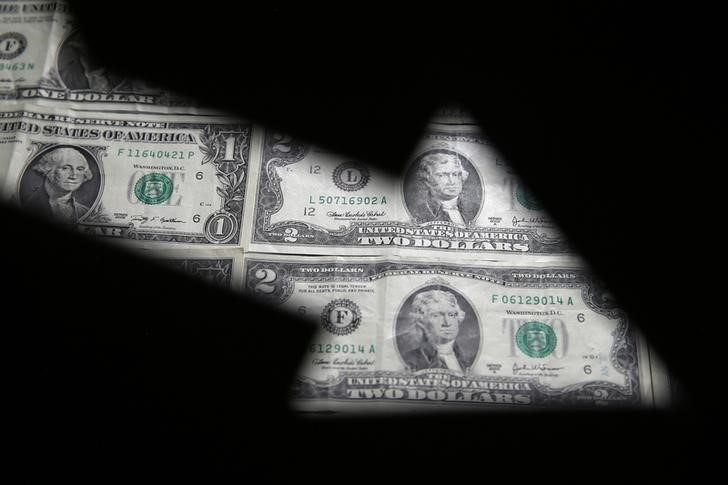Investing.com - The U.S. dollar was trading near one-month lows on Wednesday after U.S. President Donald Trump warned a trade deal with China might not come until after the 2020 presidential election and threatened to escalate his trade war with other nations.
The U.S. dollar index against a basket of six major currencies was at 97.6 by 03:47 AM ET (08:47 GMT), not far from the lows of 97.55 reached on Nov. 18.
Trump's statement Tuesday that he had "no deadline" for an agreement with China hurt sentiment as global trade frictions have already hit economic growth, with many economies struggling to find their footing.
Trump's comments on trade earlier in the week had already spooked investors.
On Monday, he said he would hit Brazil and Argentina with trade tariffs for "massive devaluation of their currencies".
The president then threatened duties of up to 100% on French goods, from champagne to handbags, because of a digital services tax that Washington says harms U.S. tech companies.
U.S. Commerce Secretary Wilbur Ross on Tuesday said that while staff-level talks are continuing with Chinese officials, no high-level meetings are scheduled.
If there is no deal or substantial progress in talks before Dec. 15, tariffs on remaining Chinese imports, including cell phones, laptop computers and toys, will take effect, Ross said.
"Expectations for a U.S.-China trade deal are fading, and dollar/yen has broken its support levels, so the bias is tilted to the downside," said Takuya Kanda, general manager of research at Gaitame.com Research Institute in Tokyo.
"More tariffs would push dollar/yen lower still."
Market analysts said the dollar could only weaken substantially if U.S. economic data showed a sharp declaration and expectations of rate cuts grew sharply. Money market futures are pointing to a rate cut of one quarter point by next July.
The dollar stood at 108.48 versus the yen, its lowest since Nov. 21, while the greenback was at 0.9856 against the Swiss franc, a level not seen since Nov. 4.
Both the Japanese and Swiss currencies tend to be sought by investors as safe-haven assets during times of heightened geopolitical tensions or market uncertainty.
The euro was little changed near one-and-a-half week highs against the dollar at 1.1085.
The biggest beneficiary of the slide in the dollar was the British pound, which climbed 0.5% to a fresh six-month high of 1.3059.
Sterling has been boosted by U.K. opinion polls showing that Prime Minister Boris Johnson’s Conservative Party is likely to win Dec. 12 elections paving the way for Britain to leave the European Union on Jan. 31.
--Reuters contributed to this report
